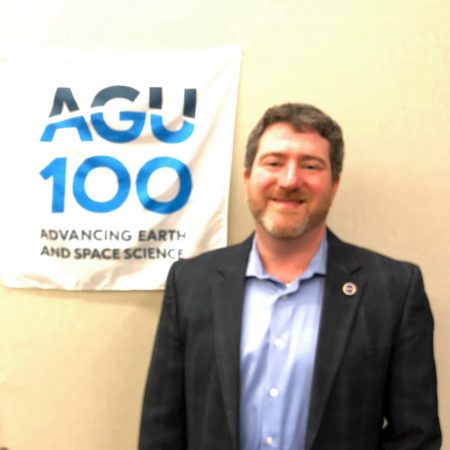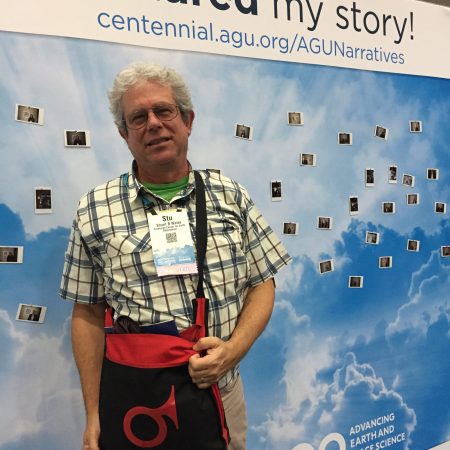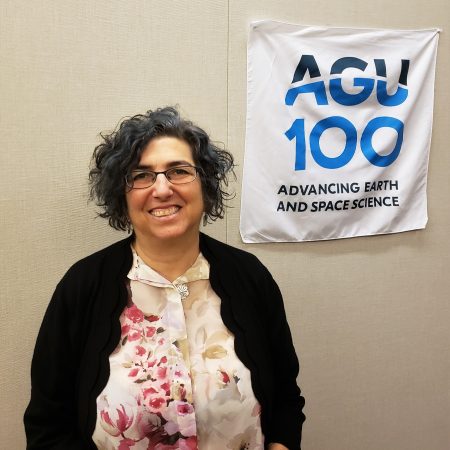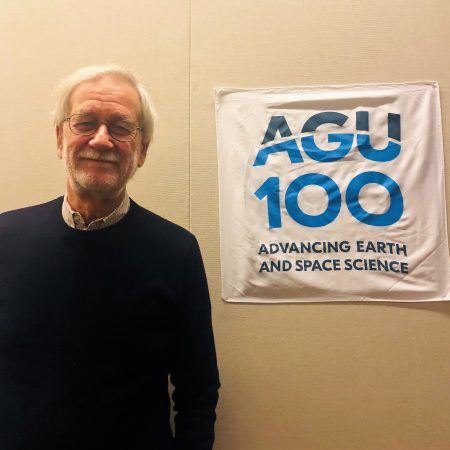Refine
Date Range Clear
Recorded by Clear
Keywords Clear
- volcanolgy 166
- #AGU100 166
- mars 166
- Future 166
- #AGU 163
- NASA 58
- discovery 55
- #womeninscience 29
- Advice 26
- 380 more
Partnerships Clear
- No matching terms.
Organizations Clear
- American Geophysical Union 34
- National Aeronautics and Space Administration 8
- The American Geophysical Union 4
- American Geopysical Union 3
- NASA 2
- 12 more
Places Clear
- Washington DC 167
- AGU 2018 Fall Meeting 157
- AGU Fall Meeting Program Commitee 3
- Leadership Development Commitee 2
- AGU 100 Fall meeting 1
- 3 more
Languages Clear
- No matching terms.
Initiatives Clear
- No matching terms.
Ross Stein is CEO and Co-Founder of Temblor, Inc., Adjunct Professor at Stanford University, a scientist at the Unites States Geological Survey, creator of films about earthquake science, and president of the AGU’s tectonic physics section. In this interview, Margarete...
The next time you see a young kid skateboarding through the neighborhood, possibly listening to punk rock on their earbuds, remember that one day that kid could be your local science professor. Doug Jerolmack’s sturdy voice and love of experimenting...
William Putman, research meteorologist with NASA , was always fascinated by the way meteorologists on television could predict what was going to happen. But instead of comparing weather reports with the blowing of the trees outside his house, Putman now...
Catherine McCammon, staff scientist at Bayerisches Geoinstitut, University of Bayreuth, Germany and longtime AGU volunteer discusses collaboration and explains how she has found that the “the whole is great than the sum of its parts,” is truly an accurate statement....
The potential downside of a career in always seeking discoveries is that it may stunt the development of your confidence. Even as someone who walked into NASA, living the dream in his mind, Nathan Kurtz experiences that downside, politely calling...
This Sao Paolo, Brazil based senior space research scientist is best known for explaining geomagnetic storms. In 2017, he received an AGU prize for “cutting-edge work” on space weather and processes. He remembers being a UC Berkeley graduate student in...
Lori Glaze, Acting Director of the Planetary Science Division at NASA Headquarters, works with everything from understanding asteroid trajectories and material make up to the InSight mission which recently landed a rover on Mars. It’s no exaggeration to say Lori...
Woody Turner, the program scientist for biological diversity and manager for ecological forecasting programs at NASA, and one of the few people in the world who directly harness the power of space to solve a whale of a problem –...
Padma Yanamandra-Fisher, a research scientist at the Space Science Institute, shares stories of her career in planetary science. She recounts how defining the launch of Voyager was and the significance of the growth in the field since. Padma shares her...
The start of a fruitful career for Richard Eckman was being on a team which discovered that the stratosphere and ozone varied in relation to the sun’s 27-day rotation. Eckman, who now works with NASA’s Atmospheric Composition Modeling and Analysis...
After one spends 50 years with the same organization, what’s next? That’s the question Dave Mao is attempting to answer after a highly-decorated career at the Carnegie Institution for Science. Born in Shangai and raised in Taiwan, Mao came to...
Erin Robinson is the Executive Director of the Earth Science Information Partners (ESIP). She knew from early on that she was interested in science and her field of remote sensing, from good science teachers in middle and high school to...
Miguel Román, a Physical researcher Scientist at NASA's Goddard Space Flight Center, shares his journey from his childhood in San Juan, Puerto Rico to NASA. Seeing the impacts of hurricanes and urban growth where he grew up, and the practical...
After a career of 30 years studying climate change, Steve Ghan embarks on another journey of steps to "Make Earth Cool Again" as he is recognized as Fellow of the American Geophysical Union during the AGU 2018 Fall Meeting.
Engaging young students outside of the classroom can help further a life-long interest in science. Elizabeth Eubanks is trying to bring these kinds of experiences to as many kids as she can. As a science teacher, she’s heard from students...
James Famiglietti, hydrologist and Director of the Global Institute for Water Security, University of Saskatchewan, discusses his work with NASA's Gravity Recovery and Climate Experience (GRACE) and the evolution of technology throughout his career including its impact on water security....
Michelle Newcomer is now a research scientist at Lawrence Berkeley National Lab but her first degree was in French and Sociology. She talks here about the fear that comes with changing careers, taking risks, and pursuing the path that you...
Steve Montzka has been at NOAA for 28 years, working on atmospheric science, atmosphere chemistry, and trace gases in the atmosphere. He started there as a post-doc, drawn by the work he saw NOAA scientists doing on the hole in...
Bruce Wielicki, a NASA Langley climate scientist, discusses his collaboration with economists to help non-scientists understand how climate change will hit them in the wallet, and how they could reduce that risk with modest investments in improved climate science. He...
How can scientists capture the public’s imagination with science? In this interview, Gordon Grant, a research hydrologist with the US Forest Service and President-elect of AGU'S Earth and Planetary Surface Processes Section, shares his experience of bringing a river to...
John Haynes, Program Manager of Health and Air Quality applications in the Applied Sciences Program at NASA headquarters, talks about catching the “weather bug” at a young age. In first grade, he told his teacher that he wanted to be...
“When you find yourself climbing San Bruno Mountain just south of San Francisco with a butterfly net collecting mission blue butterflies to repopulate on Earth Day, it doesn't get better than this.” Stuart Weiss is passionate about conservation ecology. He’s...
Jill Marshall, Assistant Professor of Geology at the University of Arkansas thought she was ready to go to college, but there she was on the campus of Boston University as a freshman overwhelmed by her surroundings and on shaky financial...
Not every scientist can boast about putting an end to Biblical-level plagues. But NASA Senior Earth Scientist Compton Tucker helped to end periodic locust swarms which pop up in dry parts of the world and go onto wreak havoc on...
Chris Hain from the Short-term Prediction Research and Transition Center helps turn NASA data into information that non-scientists can use. One of his big projects is monitoring plant stress from space, which can give farmers a 2-4 week early warning...
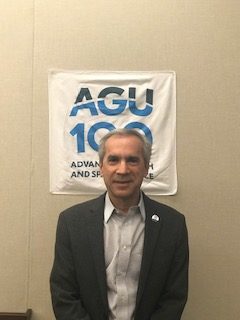
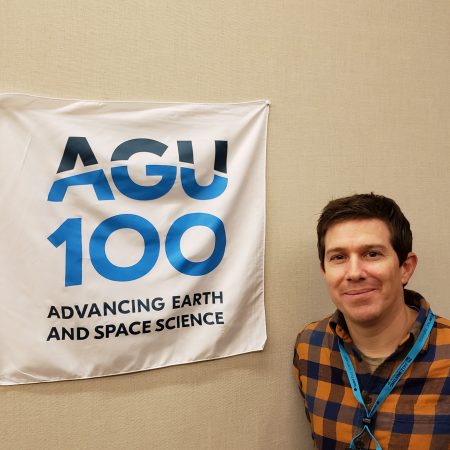
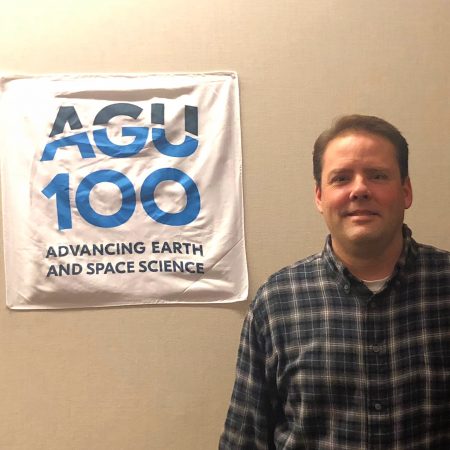
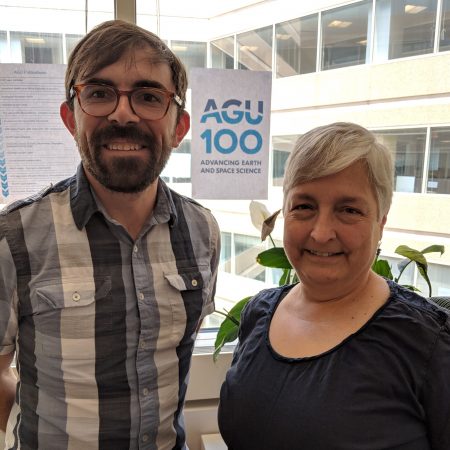
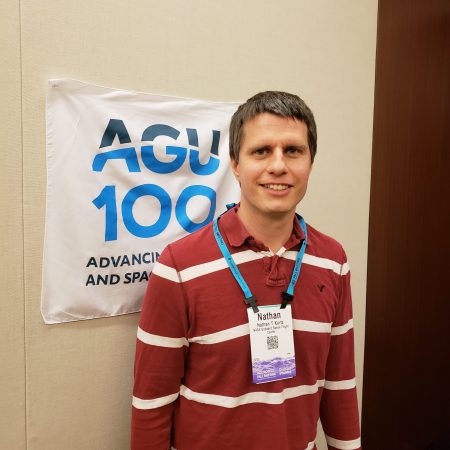
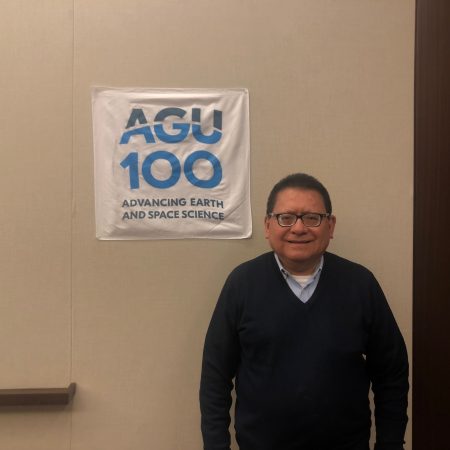


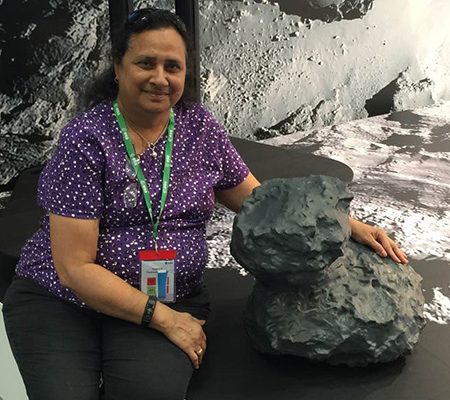

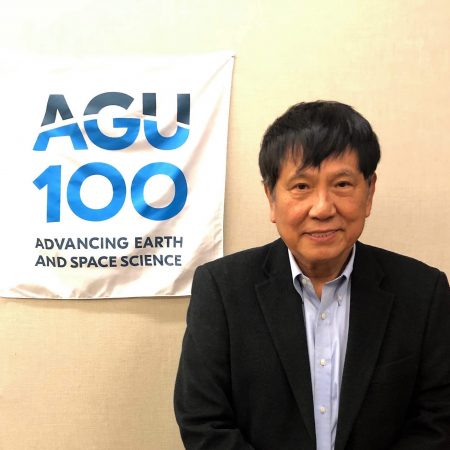


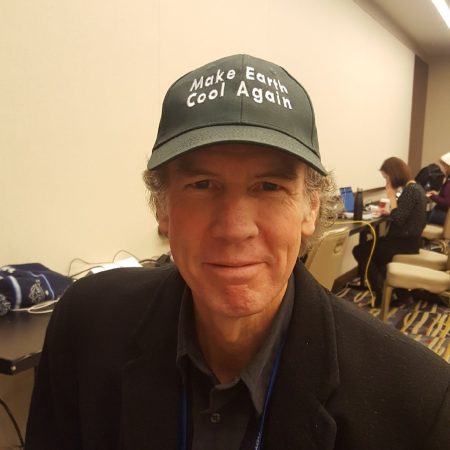
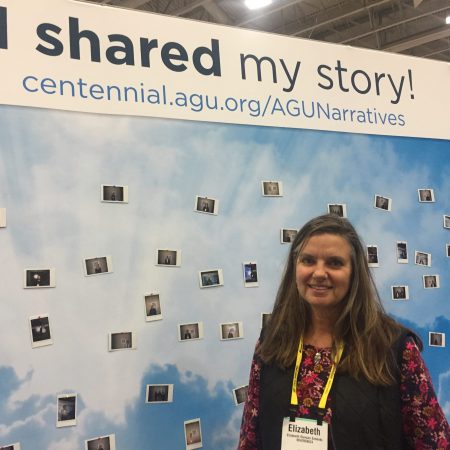

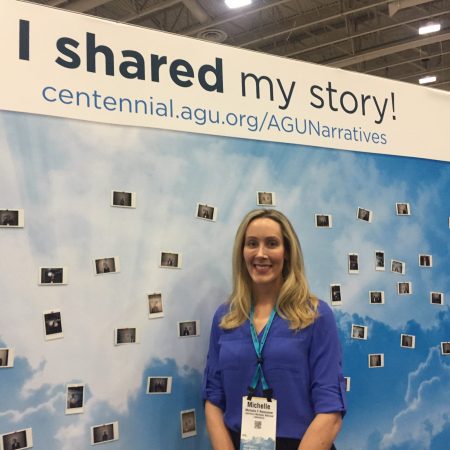
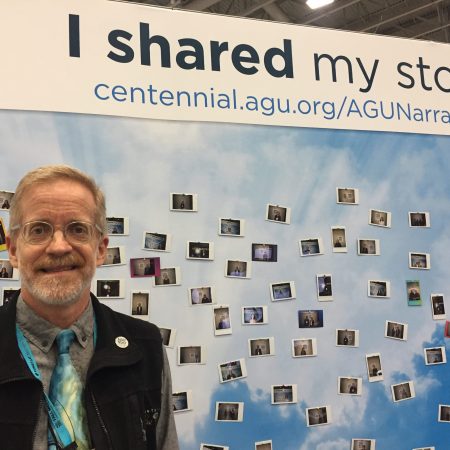
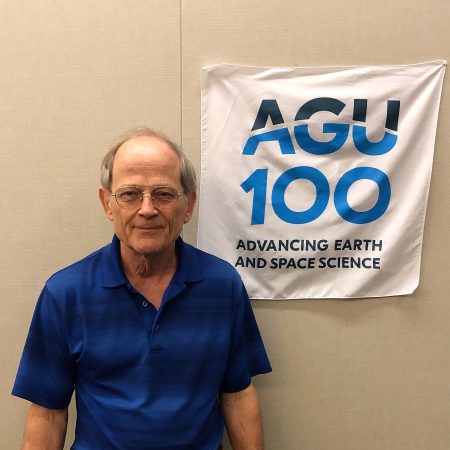
!["Science is a process of understanding nature; [we can] help people see science as a means of doing that." an interview with Gordon Grant](https://archive.storycorps.org/uploads/2019/02/20181211_Gordon-Grant-450x450.jpg)
